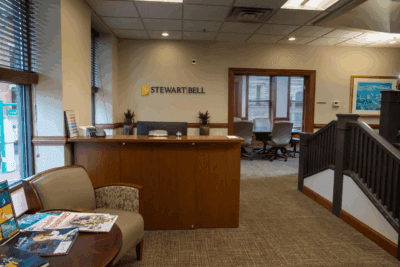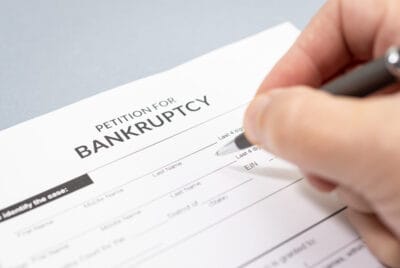
Know Your Rights in West Virginia
The Short Answer…
Under West Virginia law, debt collection fees on consumer debt (any debt entered into for a personal, family, or household purpose, and not related to a business) are often illegal unless specifically agreed to in writing and specifically authorized by law. While some states allow debt collectors to tack on additional fees or even threaten attorney costs, West Virginia protects consumers from these abusive practices. If you’re being told you’ll owe attorney fees or extra charges just for not paying a bill, it’s time to talk to a lawyer and push back against these unlawful threats.
Key Takeaways
- Most extra fees are illegal without written consent and statutory authorization. Debt collectors in West Virginia cannot charge fees like attorney costs, collection expenses, or convenience fees unless those fees are specifically agreed to in your original contract and specifically allowed by statute (which they almost never are).
- Threats of added fees may violate the law. Statements warning that you’ll owe attorney or collection fees if you don’t pay are red flags and could form the basis for legal action.
- Pay-to-pay fees are often unlawful. Charges based on how you make a payment are usually illegal unless they reflect actual costs and were clearly disclosed.
- Junk fees distort your balance. Hidden, vague, or excessive charges not tied to real expenses may violate federal and state consumer protection laws.
- You don’t have to face this alone. Stewart Bell, PLLC helps West Virginians challenge illegal debt collection practices, pursue compensation, and get financial relief.
Table of Contents
What Are Debt Collection Fees?
Debt collection fees refer to extra charges added to an existing debt, often including:
- Collection agency fees: Additional costs (often ranging from 20% to 50% of the debt) that collectors try to impose when they’re hired to recover the amount owed
- Debt collection attorney fees: Legal costs the collector claims you’ll owe if they take you to court
- Late fees and administrative costs: Sometimes tacked on after missed payments
- Pay-to-pay fees: Added costs for paying via phone, mail, or credit card
- Junk fees: Hidden or inflated charges unrelated to the actual debt
What Does the Law Say?
According to West Virginia consumer protection law, debt collectors may not charge any amount not expressly authorized by the agreement creating the debt and permitted by law. In other words, if a fee isn’t written into your original contract and approved under state or federal law, it’s likely illegal.
Illegal Debt Collection Fees in West Virginia
Under West Virginia consumer protection laws, adding collection agency fees, legal costs, or pay-to-pay fees without written consent is strictly prohibited. Here’s what you need to know:
Threats of Collection Costs and Attorney Fees
In West Virginia, debt collection letters that threaten to charge you additional collection costs, attorney fees, or other penalties if you don’t pay may violate state law, and in many cases, they can form the basis for a class action lawsuit.
Statements like these are red flags:
- “If we file a lawsuit against you, you’ll owe our attorney fees.”
- “You’ll be responsible for all collection costs if you don’t pay now.”
- “Failure to pay will result in added legal expenses.”
For consumer debts (like medical bills, credit cards, vehicle loans, or personal loans), these threats likely violate West Virginia law.
Pay-to-Pay Fees (Convenience Fees)
Many debt collectors and financial institutions add extra charges based on how you choose to pay, whether by phone, mail, or credit card. These are often called pay-to-pay or convenience fees.
Under West Virginia law, such fees are only lawful if you agreed to them in writing as part of your original agreement, and only when they reflect the actual cost of processing the payment.
In practice, we’ve found that these charges are often significantly higher than the real cost to the company, making them a hidden profit source rather than a true processing fee. If a fee suddenly appears on your bill and you don’t recall ever agreeing to it, there’s a good chance it’s illegal under West Virginia law.
If you’re being charged for simply choosing a payment method, and you never signed off on that fee, you may have legal grounds to challenge it.
Junk Fees
Junk fees are hidden, excessive, or unjustified charges tacked onto your debt total. These often include:
- Arbitrary service fees
- Vague “administrative” charges
- Unlisted legal filing costs
- Markups on third-party processing
According to the Consumer Financial Protection Bureau (CFPB), junk fees distort your actual balance and may violate both FDCPA and state law.
How to Know if a Collection Fee Is Legal
Ask yourself the following:
- Was this fee listed in your original contract or loan agreement?
- Did you agree to this fee in writing?
- Is the fee tied to an actual cost the collector paid on your behalf?
- Is it permitted under federal or West Virginia law?
If the answer to any of these is “no,” you’re likely facing an illegal debt collection charge, and it’s time to speak with an experienced attorney who can help you understand your rights and take action.
How to Respond to Illegal Debt Collection Fees
If you’re receiving letters, emails, or phone calls that include threats of added fees or legal costs, don’t ignore them and document everything. These tactics may be illegal, especially under West Virginia law, and you have the right to take action.
- Review your original agreement: Look for any mention of collection fees, legal expenses, or payment-related charges. If it’s not there, the fee likely isn’t enforceable.
- Keep records of all communications: Save letters, voicemails, emails, and screenshots. These documents can be valuable evidence if you pursue legal action.
- Contact an attorney: A qualified attorney can review your case, help you understand whether your rights have been violated, and take steps to hold the collector accountable.
You Don’t Have to Face Debt Collectors Alone
At Stewart Bell, PLLC, we don’t just help people file for bankruptcy—we help protect them from illegal debt collection tactics that add stress, fees, and financial harm. Our firm has experience with:
- Chapter 7 and Chapter 13 bankruptcy filings
- Protecting West Virginians from abusive debt collectors
- Pursuing class actions against collection agencies making unlawful threats
- Getting illegal fees erased and recovering compensation for clients
Whether you’re overwhelmed by debt, being harassed by collectors, or facing a collection lawsuit, our team is here to help you understand your rights and take action to protect them. If you’ve been threatened with extra fees, attorney costs, or surprise charges, those threats could be the foundation for a legal claim and used as a powerful defense in a collection lawsuit.
Reach out today for a free consultation to find out how we can help you take back control and stop unlawful debt collection in its tracks.





